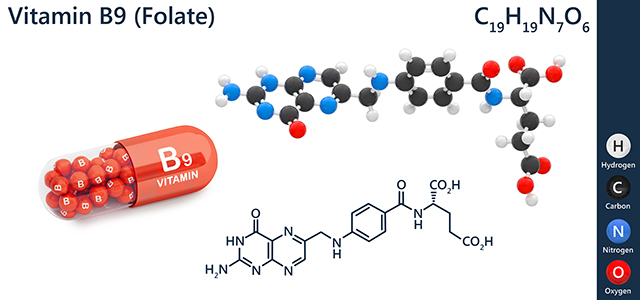Combining B-vitamins and omega-3s found to reduce risk of dementia, Alzheimer’s
04/02/2018 / By Edsel Cook

A recent study by the University of Oxford discovered that a combination of B-vitamins and omega-3 fatty acids could lower the risk of dementia by reducing the rate at which the disease develops.
Part of the Oxford Project to Investigate Memory and Ageing (OPTIMA), the study found that the interaction between the two nutrients is key to preventing dementia. If the levels of omega-3 fatty acids were too low, B-vitamin treatment could not make much headway in reducing its progress.
Poor nutrition is considered to be one of the contributors to the onset of various forms of dementia, such as minor cognitive impairment (MCI) and Alzheimer’s disease. Low levels of B-vitamins and omega-3 fatty acids are known risk factors for dementia.
One way to determine B-vitamin level is by measuring the amount of homocysteine in the blood. Elevated levels of the non-essential amino acid indicate low levels of B-vitamins, some of which are able to break down homocysteine into more useful cysteine or the essential methionine.
The Medical Research Council (UK), Charles Wolfson Charitable Trust, and Norwegian Research Council provided funding for the OPTIMA study. (Related: Many cases of “dementia” are actually side effects of prescription drugs or vaccines, according to research.)
Test administers B-vitamin treatments to MCI patients
The study comprised a randomized, controlled trial with 270 elderly people. Each participant suffered from mild cognitive impairment (MCI), a prodromal stage of dementia where symptoms are present but are not severe enough to interfere with the patient’s daily life or independent function.
The trial period lasted for two years.
The University of Oxford researchers gave high doses of folic acid, B6, and B12 to some of the participants, while others received placebos as a control measure. Their primary objective was to determine if the disease process could be influenced by lowering homocysteine levels using B-vitamin supplements.
Furthermore, the researchers measured the baseline plasma omega-3 fatty acids of participants who received folic acid, B6, and B12 supplements. They wanted to find out if the levels of the essential fatty acids exerted any effects on the B-vitamin treatment.
B-vitamins and omega-3 fatty acids work together to fight dementia
According to their findings, the two-year-long treatment achieved detectable success in slowing down the rate of brain atrophy in participants with high levels of homocysteine. The B-vitamins were able to protect parts of the brain that are known to be vulnerable to Alzheimer’s disease.
The treatment also slowed down the rate at which the participants’ cognitive and clinical capabilities declined.
Furthermore, the researchers proved that the levels of baseline omega-3 fatty acids are linked with the B-vitamins. Participants with high levels of essential fatty acids enjoyed higher levels of protection against brain atrophy, cognitive decline, and clinical deterioration.
The reverse was also true. Patients with low levels of omega-3 fatty acids did not gain much benefit from the B-vitamin supplements.
The researchers concluded that it is possible to modify the progression of MCI by reducing homocysteine levels with B-vitamin treatment. However, this will only work if the omega-3 fatty acid levels of the patient are good.
They believe this outcome can be applied to Alzheimer’s disease as well. According to the Alzheimer’s Association, people with MCI are more vulnerable to developing AD and other forms of dementia.
Based on the encouraging results of their study, the University of Oxford researchers proposed that a new trial involve the administration of B-vitamins and omega-3 fatty acids to patients with MCI. The objective of the new trial would be to find out if the combined treatment halts MCI’s conversion into dementia or Alzheimer’s disease.
Sources include:
Tagged Under: Alzheimer's disease, b vitamins, brain health, cognitive health, dementia, folic acid, mild cognitive impairment, natural medicine, nutrients, nutrition, omega-3 fatty acids, omega-3s, prevention, risk factors for dementia, vitamin B12, vitamin B6



















